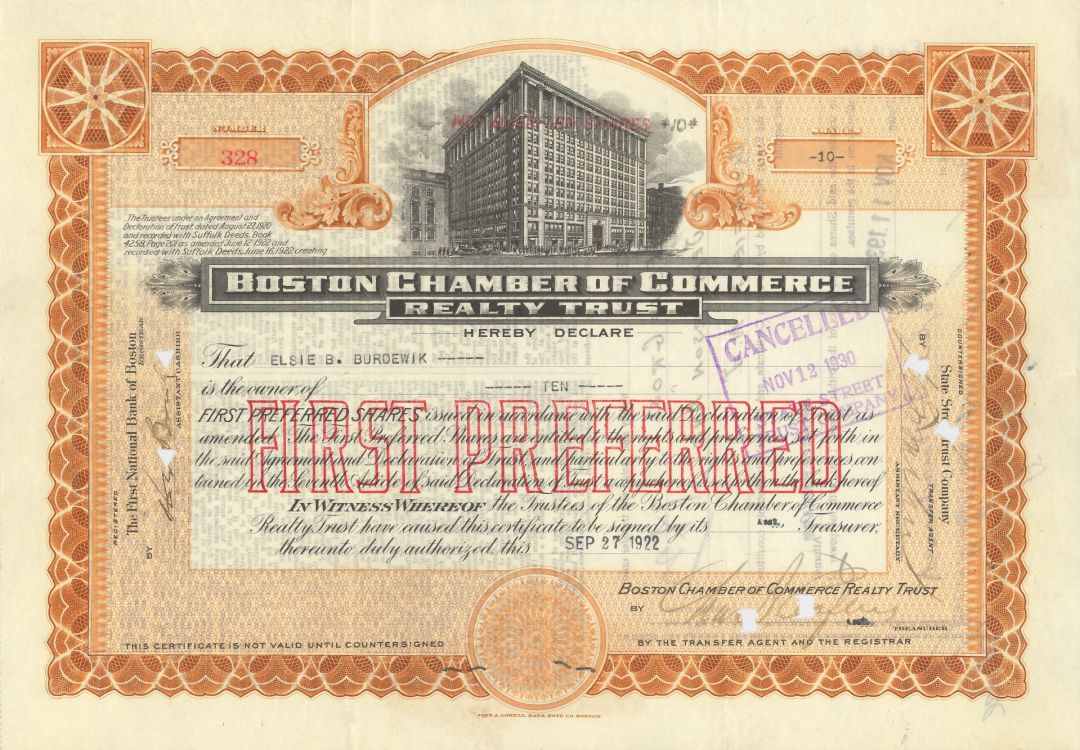Boston Chamber of Commerce Realty Trust - Stock Certificate
Inv# BS1258 StockState(s):
Massachusetts
Years:
1920's
Color:
Brown
Stock printed by American Bank Note Company. Boston, Massachusetts.
Condition:
Excellent
A stock certificate is issued by businesses, usually companies. A stock is part of the permanent finance of a business. Normally, they are never repaid, and the investor can recover his/her money only by selling to another investor. Most stocks, or also called shares, earn dividends, at the business's discretion, depending on how well it has traded. A stockholder or shareholder is a part-owner of the business that issued the stock certificates.
Item ordered may not be exact piece shown. All original and authentic.











Ebay ID: labarre_galleries